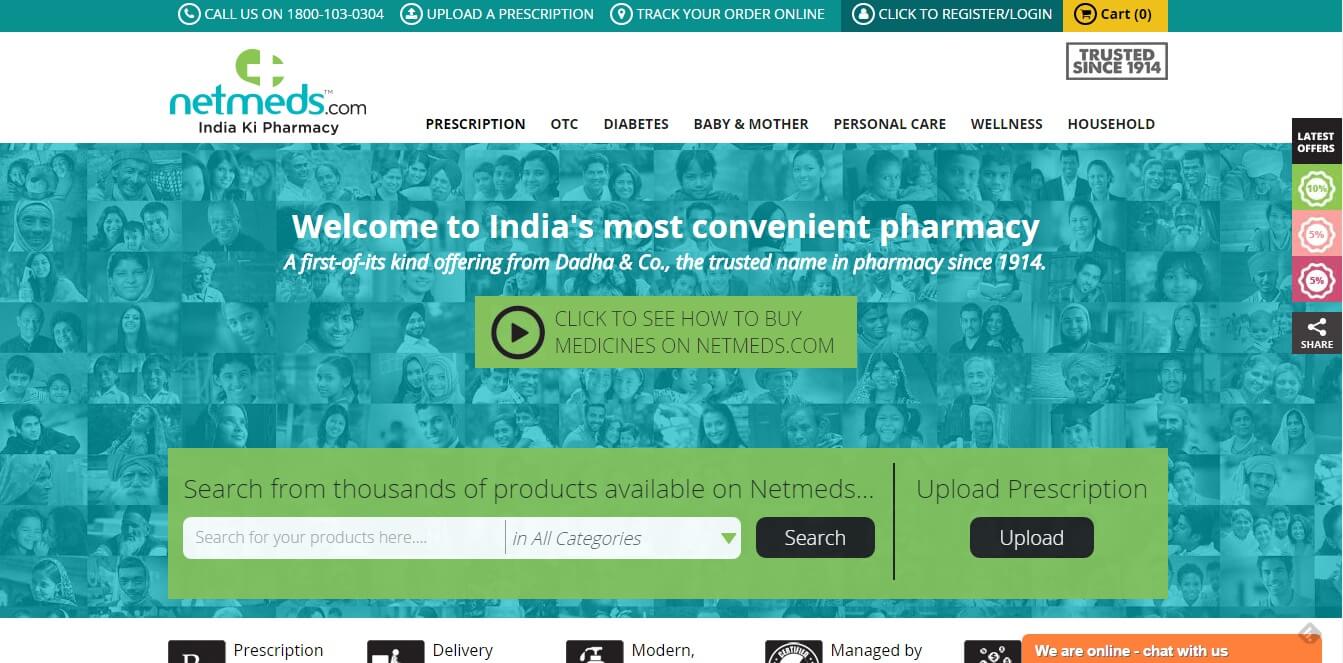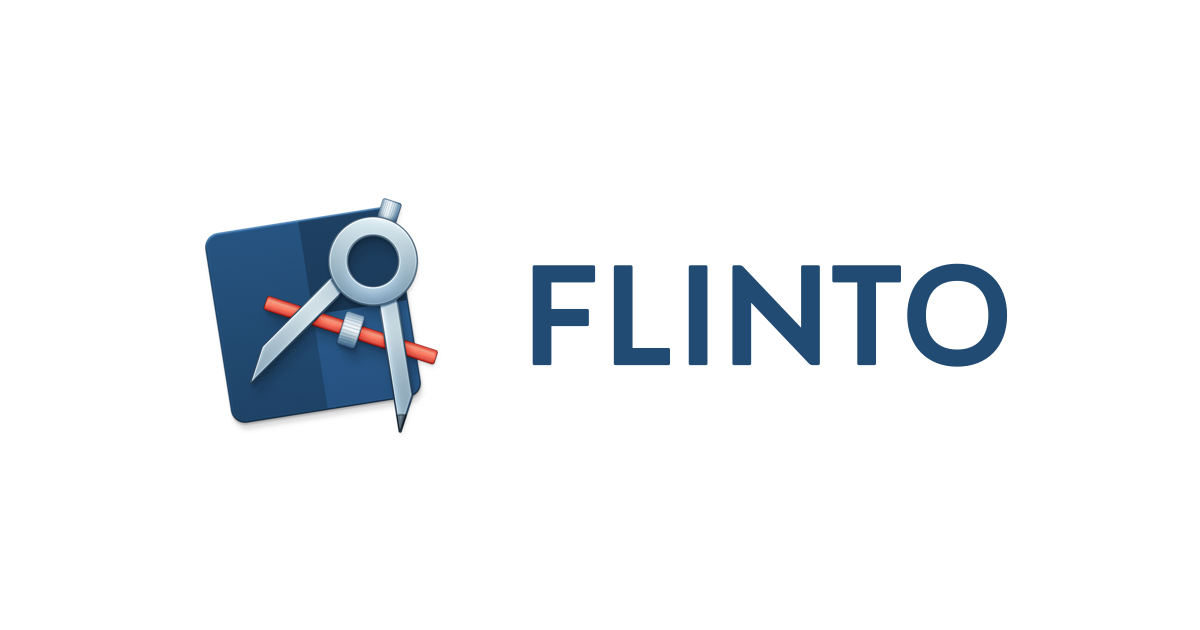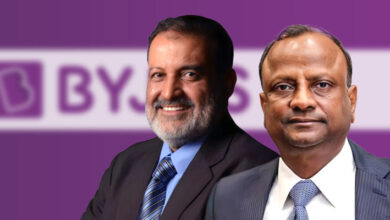
Top 10 Most Reputed Startups In Chennai 2022
Over the past few years, Chennai has been a hub for auto and industrial startups and SaaS (Software as a Service) companies.
Chennai is also house to top deep tech, fintech, educational technology, and consumer technology startups.
According to the Tamil Nadu government’s Startup & Innovation policy 2018-2023, at least 5000 tech startups will be created by 2023, and educational institutions will work with the government to promote entrepreneurial spirit and reduce government regulations.
An entrepreneur-led startup grow a unique product or service and brings it to market by bringing together two or more founders. They are companies in the early stages of their growth. Their founders are working on bringing to market a single product.
Startups are economic models developed by entrepreneurs to solve problems. The Indian government supports this capabilities. Starting a new business aims to create an innovative product that will capture the market and beat the competition.
On January 16, 2016, Startup India launched. To date, 41,061 startups have been identified by the government. The Indian startup ecosystem is ranked third in the world. Recently, many startup companies and entrepreneurship cultures have increased in Chennai.
The Indian IT (Information Technology) industry plays a specific role in today’s world. It is home to many famous companies. It is also several prominent company’s headquarters in Chennai.
PM Modi has launched a scheme in India called as “Make in India.” As companies have developed to meet the needs and preferences of local entrepreneurs. India has created many successful startups and is becoming a important startup hub due to its several states and cities. Chennai in Tamil Nadu stands at the number four position in the number of startups in India and is the state’s capital.
The business environment and ecosystem in Chennai make it one of the most popular startups. The following article contains some of the best startups in Chennai that you must know about. If you are looking for startup information in India, you have come to the right place. But before you do anything, you must understand what startups are and how they work.
What does the word startup mean?
At this moment, India is experiencing a boom in startup creation. An entrepreneur, personally or through a business entity, creates a startup to fill a need for the future. A startup produces new products and services that are unique and stand out. They developed a new idea for a fantastic product or service modern people need. To establish and build a startup, entrepreneurs need to present an innovative product and beat their competition. The business model should also be scalable and repeatable.
Startups at first lack the funding to carry out their future operations, seeking alternative funding sources like financial institutions, family, and friends. In favor for a portion of the company’s shares or authority, the seeds provide them with funding. Entrepreneurs who founded successful startups include Ray Kroc, who founded McDonald’s, and Bill Gates, who founded Microsoft. It is possible for a new product not to be liked by clients as it is a newly developed product.
How do product-based companies work?
Companies with product-based business models plan to develop business line that people will demand. They work day by day to intensify the quality and quantity of their products to satisfy their customers. These companies are based on product-based technologies. With these technologies, they can develop their products.
Companies sell their services as a source of revenue. This type of company makes money by selling its goods.
Internet users have trouble finding data on the internet before a few dozens of years ago. So to make finding data on the internet easy, Google was founded by Larry Page. The company’s website ranking system organizes websites by popularity. In addition, Google has introduced its search engine to make data searchable because Google’s search engine is a Google product.
For another example, companies like Ola and Uber are now providing taxi services. Taxis were also attainable a few years ago. People and taxis, on the other hand, do not interact. The companies listed above were formed to address this issue.
Services like Uber and Ola accept cash or online payments. Or how do you pay Google for the services you use? You remunerate them as a form of advertisement. For example, many businesses pay Google to promote their products or services. Google AdSense allows those businesses by displaying advertisements on our websites. In this approach, both Google and we profit.
Upon looking around you, you will find many products in the area, for example refrigerators, televisions, etc. Each of these products relates to a product-focused company. For example, iPhone, Godrej cupboards, and Pepsi drinks are all products of product-focused companies. These companies don’t make products specific to a particular group of people. This means the companies don’t produce products tailored to specific people. You must purchase products available in the market.
There are no refrigerators available with more freezer space and fewer regular freezers. You must purchase the fridge that is available in the market. You must buy the car as per the pieces available in the market if you are looking for a particular vehicle, such as a modified car. A company cannot change a car exclusively for you. Instead, the company conducts market research and designs products in high demand by the general public.
Differences between startups and businesses
There is a vast difference between startup and business; many people do not even know what a startup is. It is essential to understand that the motivations and factors of business and startup are entirely different. Below are some of the points that make this distinction clear.
• The purpose of development – One of the most important differences between a startup and a business is the purpose for which they were founded. The purpose of starting a business is to create a unique and innovative product or service that meets client demand. On the other hand, the company manufactures pre-existing items sold through other entrepreneurs or businesses.
• Growth – A startup is a production company that wants to gain popularity and multiply as possible, whereas a business does not want to grow and stay in the market for as long as possible.
• Profit – The essential aspect that distinguishes a startup from a business is profit. Startups want to make more money, while companies want to stay in business, sell their products, and serve their consumers for an extended period.
• Risk – One of the immediate aspects that distinguish a startup from a business is a risk. The company is riskier because it is fresh to the market and can fail even though it does not entail an immense risk.
• Finance – There are various sources of funding for startups and businesses. Startups raise funds from multiple sources, including family, friends, and capital ventures. In addition, bank loans and some other similar sources are used by businesses to raise funds.
• Long-term objectives – The business was ended by giving it to his son or a family member or selling it to others. A startup does not come to an end like way.
• Business model – A startup’s business model differs from a company’s business model. For example, the startup follows a predictable and scalable business plan, while the company follows a stable and scalable approach.
Product-based companies are good places to work.
The market is full of myths. For example, many people say that working for a product-based company is very rewarding. The working environment is excellent, there is little responsibility, and the salary will be extremely high. There may be some truth in some of these myths, but not all. Now, let me go into depth on this. Remember, this is just like a regular company. Here, you work, and in exchange, you receive a salary. In that case, the company is surviving in the market because it earns a higher wage from you.
Is their salary excellent?
We can’t say directly how much salary it pays, but we can conclude that it produces a good wage if the product is top-rated.
Assume you run a company. Employees are making a new product. They spend money making it. You have now launched your product into the market. It has become successful. Now that you have created your product once, you do not have to redesign it. In other words, there is only one investment.
Take What’s App as an example. What’s App has about 30 to 35 employees on average. Thirty-five people participated in this chat. Take note that this chat did not succeed. Several development efforts were made. Developers spent money to develop it. Only 100 to 150 people used it. Inversely, if What’s App became successful, 100 crores of people would use it now. Due to a large number of users, the earnings, in addition, would be high.
Currently, this is a one-time investment for everyone. What’s App is already being used. There is no need for any changes to every individual. As soon as you have a successful product in the market, you do not have to reinvent it. You can keep making it, and it will not cost you money again. You only have to pay the maintenance costs. A high-quality product means high-quality earnings, and thus will also pay a good salary to the company’s employees.
Companies that focus on products have an advantage.
• Can pay employees well in a product-based corporation. However, if a corporation is more flexible, it will also provide more services.
• Since there are no different customers, the entire employee team works on a single plan. As a result, employees devote their complete attention to improving their quality.
• It will provide you with additional satisfaction. Because everyone on your team is working towards the same goal.
• Employees are also given some business stock. It indicates that the corporation will provide your shares in exchange for your wage. You can make more money by selling these shares.
• There isn’t enough interaction with consumers, so you don’t get headaches. But, again, this is beneficial for those who must devote their entire day to completing the task at hand.
• Work hours are flexible. There is no time constraint for finishing the assignment.
Product-based businesses have suffered some losses.
• According to the competition, the company has a significant possibility of failing at any point. Nokia was formerly the world’s leading firm, but it has fallen behind and phased out of the market owing to match.
• If the company suffers a setback, the stock will also suffer. You will also lose your job. Working in a product-based company is not safe.
• If you’re thinking of starting a business while working for someone else, you won’t learn much about business because you’ll engage less with clients. You’ll also lose how to communicate.
• If you do not provide the most excellent service to the organization, you will be fired. Because the company does not cut corners when it comes to product quality.
1. Northern Arc
US International Development Finance Corporation (DFC) has provided debt financing to Northern Arc for US$50 million. In light of the Covid-19 pandemic and the subsequent Indian market lockdown, Global Development Financial Institutions have approved the first significant facility for NBFCs.
This is one of the first significant facilities approved by global development financial institutions for the NBFC sector. In addition to lending to small businesses and individuals, Northern Arc will use this fund to support its institutional clients’ growth and liquidity needs. Water, Sanitation & Hygiene, Sustainable Agriculture, Women Entrepreneurship, and Food Security will all benefit from it. We partner with companies across the world to address some of the critical challenges the developing world faces and America’s development bank and one of the leading impact investors in the world.
Using Northern Arc as a platform to serve the underbanked and promote women entrepreneurship is a natural partnership for DFC, according to CFO Bama Balakrishnan. Among Northern Arc’s senior management roles are many women, and the company has advocated for more excellent career opportunities for women and greater representation of women in financial services. In addition, especially following the onset of the Covid19 pandemic and its consequences, the transaction will help small and midsize NBFCs that cannot raise debt from investors.
These entities serve over 50 million customers are operated across 580 districts across India. Northern Arc is delighted to receive funding from DFC and looks forward to working with the organization to expand financial services across India to underbanked communities. VP of Strategy at DFC, Burrier. During COVID-19, when access to capital is being disrupted around the globe, Northern Arc’s role is all the more critical.
We’re especially delighted that our funding will go toward mortgages that strengthen women, who are disproportionately affected by crises like COVID-19, as well as enhanced drinkable water, cleanliness, and food, all of which are critical for global health resilience.”
| Legal Name | Northern Arc |
| Industries | Non-banking finance company |
| Founder(s) | Kshama Fernandes |
| Founded Date | 2008 |
| Total Funding Amount | INR 30.48 billion |
| Investors | Small Business Loans (MSME) |

2. Agnikul
Alaska Aerospace and AgniKul will collaborate to get multiple regulatory approvals. They include launch permission from the US Federal Aviation Administration (FAA), export control from the US, and compliance with export rules and regulations in India.
From 2022 onward, the company plans to launch commercial rockets. The Alaska Aerospace Corporation and AgniKul Cosmos, a startup aerospace company in India, signed a memorandum of understanding from Kodiak Island in the United States. They will launch the Indian-made Agnibaan rocket.
The goal is to establish the interfaces between launch vehicles, spaceports, and related procedures and undertake at least one critical launch from PSCA.
According to Srinath Ravichandran, Co-founder and CEO of AgniKul Cosmos, this statement is more proof of their company’s continuous progress. “AgniKul and Alaska Aerospace believe in the concept of accessing that is quick, agile, and low-cost.
| Legal Name | AgniKul |
| Industries | Cosmos Launch Vehicles |
| Founder(s) | Srinath Ravichandran, Satyanarayanan Chakravarthy, Moin SPM |
| Founded Date | 01 Dec 2017 |
| Total Funding Amount | $14.5M |
| Investors |
18 investors |

3. Vivriti Capital
Access to financing has proven challenging for stakeholders in the commodities sector, preventing them from procuring or distributing their products and hampering their ability to secure timely funding. Perceived risk of severe price fluctuation, the capacity to oversee or monitor the physical commodity, and commodity liquidation are just a few of the issues investors face. Combined with a shortage of capital market instruments in the industry, these factors have kept underserved, with just banks and a few NBFCs historically participating.
Origo Commodities India Pvt. has allocated Vivriti Capital Negotiable Warehouse Receipts (NWRs) to finance India’s first securitization transaction. Ltd, sensing an opportunity to fill this gap and with a strong track record of complex products a fast and efficient experience (OCIPL).
| Legal Name | Vivriti Capital |
| Industries | financing |
| Founder(s) | Irfan Mohammed, Gaurav Kumar, Vineet Sukumar, Aniket Deshpande, Soumendra Ghosh |
| Founded Date | 22 Jun 2017 |
| Total Funding Amount | $94.3M |
| Investors |
NA |

4. Netmeds
There has been significant consolidation in the e-pharmacy sector with back-to-back mergers and acquisitions. Reliance announced its controlling stake in Netmeds after filing a merger application with the Competition Commission of India (CCI) hours ago. Vitalic Health Pvt. Ltd. has acquired a majority stake in Reliance Industries Limited through its associate Reliance Retail Ventures Limited (RRVL). The transaction values the company at nearly Rs 1,034 crore, as it comprises Netmeds and its subsidiaries (collectively called Netmeds).
Reliance announced in a press release that it had acquired a 60% stake in Vitalic Health. Additionally, the company owns 100% of its subsidiary companies, Netmeds Marketplace Limited, Tresara Health Private Limited, and Dadha Pharma Distribution Pvt Limited. Netmeds began fulfilling orders through JioMart when Reliance Retail partnered with it in April. This year, the chain of events started after Vitalic changed its capital structure to facilitate the deal disclosed through regulatory filings.
Investors in Series A of Vitalic have been allocated equity capital in exchange for their stake. The warrant holder, Bennett Coleman and Company Limited, had its shares converted into equity shares with 229,845 shares. In addition to canceling the existing employee stock option plan, the board also adopted a special resolution.
| Legal Name | Netmeds |
| Industries | Online Pharmacy |
| Founder(s) |
Pradeep Dadha
|
| Founded Date | 2010 |
| Total Funding Amount | $99M |
| Investors | Tanncam Investment and Daun Penh Cambodia Group |

5. BankBazaar.com
According to BankBazaar Chennai, Tamil Nadu, India (NewsVoir), millennials’ high credit scores indicate their growing financial literacy and creditworthiness. BankBazaar.com, one of India’s most significant personal finance marketplaces, shared one of their most heartening findings with the world about credit reports, according to BankBazaar.com, India’s top private financial marketplace.
BankBazaar is one of the most popular personal finance websites in the country, receiving close to 30 million views every month on average.
Consumers have been receiving free credit reports from the company since January 2017 in partnership with Experian. As a result, BankBazaar’s credit score service has seen a 111% increase in usage over the last year. In addition, many of these consumers check their scores every month, showing an increased commitment to building, maintaining, and improving their scores.
In the loan approval process, lenders check the credit report first, according to BankBazaar Co-founder and CEO Adhil Shetty. As a result, we’ve made a concerted effort to inform clients about the necessity of maintaining a positive credit history. For nearly three years, we’ve been assisting consumers in checking, tracking, and improving their credit scores to maintain a healthy financial life. As a result, customers with high credit scores are becoming more careful in monitoring their credit reports and appropriately managing their financial lives, as seen by a large number of customers with high credit scores.”
| Legal Name | BankBazaar |
| Industries | Finance marketplaces |
| Founder(s) | Arjun Shetty, Rati Shetty, Adhil Shetty |
| Founded Date | 01 Jul 2008 |
| Total Funding Amount | $115M |
| Investors | Ramesh Srinivasan and Amazon |

6. Happyfox
Shalin Jain founded Happyfox in 2011, formerly Tenmiles.
In addition to providing help desk ticketing software and live chat, Happyfox is also a cloud-based help desk. Through a single interface, Happyfox reduces the time it takes for support teams to respond to emails, phone calls, and live chats.
The ticketing system developed by Happyfox facilitates the provision of customer service by providing a user-friendly ticketing interface, multilingual support, and the automation of repetitive tasks. In addition, Happyfox Assist AI enables IT support, HR, and operations teams to increase productivity by leveraging artificial intelligence (AI) in Slack and groups to reduce tickets and improve agent productivity. According to the company, more than 12K companies in 70+ countries use Happyfox.
| Legal Name | Happyfox |
| Industries | Desk ticketing software |
| Founder(s) | Shalin Jain |
| Founded Date | 2011 |
| Total Funding Amount | $152B |
| Investors | NA |

7. Sulekha
The Sulekha platform launched in 2007 provides local business services. More than 1100 employees work for Sulekha, founded by Satya Prabhakar. It is headquartered in Chennai.
It is one of the earliest companies launched in India; this platform uses technology to understand user needs and connect them to service professionals.
Professionals pay the platform for the platform’s performance. In addition, hundreds of media outlets have featured him as an author. Sulekha’s mission is to simplify users’ lives and grow the businesses of service providers. It is a private company. In countries such as the United Kingdom, the United Arab Emirates, Canada, and the United States, it has 14 offices.
| Legal Name | Sulekha |
| Industries | Local business services |
| Founder(s) | Satya Prabhakar |
| Founded Date | 01 Jan 2007 |
| Total Funding Amount | $818.1B |
| Investors | USA-based Norwest Venture Partners (NVP), Japan-based Mitsui & Co, Singapore-based GIC and USA-based Indigo Monsoon Group |

8. Flinto
In July, a pre-Series B funding round led by Lightbox Ventures led to a $7.2 million investment by edtech startup Flinto Learning Solutions. Flintoclass@HOME, Flinto’s recently launched pre-school solution, will be used to support rapid growth in the early learning space. Shreenidhi Srirangam, Vijay Babu Gandhi, and Arunprasad Durairaj founded the organization in September 2013, during the COVID-19 pandemic. The firm claims to provide structured early learning to the doorstep, focusing on getting children school-ready from the comfort and safety of their own homes.
| Legal Name | Flinto Learning Solutions |
| Industries | edtech |
| Founder(s) | Arunprasad Durairaj, Shreenidhi Srirangam, Vijaybabu Gandhi |
| Founded Date | 01 Sep 2013 |
| Total Funding Amount | $7.2 million |
| Investors | NA |

9. Kaleidofin
Kaleidofin is a neo-bank launched in 2017 by Puneet Gupta and Sucharita Mukherjee that provides tailored financial charter plans to assist underbanked Indians in achieving their financial goals.
Kaleidofin offers the following products:
KaleidoPay: Allows NBFCs and MFIs to collect future billing from their clients. Allows both phone and non-smartphone users to make payments, reduces human data entry, and reduces errors using machine learning techniques.
Kishore enables lenders to use predictive analytics to assess customers in real-time.
Kaleidofin provide udaan, lakshya, and ummeed services. Each provides a goal-based saving option that encourages the user to create a saving habit and introducing Kaleidofin. This financial solution company raised $5.1M in Series A in December.
| Legal Name | Kaleidofin |
| Industries | Finance |
| Founder(s) | Sucharita Mukherjee and Puneet Gupta |
| Founded Date | 2017 |
| Total Funding Amount |
$17.9M
|
| Investors | Three institutional investors |

10. FLINTOBOX
It is a steam-based educational activity box company based in India founded in 2013. Its headquarters are in Chennai. Subscription boxes are delivered to children’s doorsteps by this company.
Children will find learning to be more engaging and healthy with Flintobox, designed by child development experts. Children can create, explore, play, and read through the four main activities in the kit, and sometimes a bonus activity is added.
The startup founders want to get children away from watching television by concentrating on their smartphones all day long. BUSINESS TODAY named Flintobox “coolest startup of 2014”, and the confederation of Indian industries named Flintobox “best education startup of 2014”.
The company was awarded the “Best startup award” at TIECON Chennai in 2017. Last year, three awards were given to Flintobox: Innovative Learning Solutions by The Academic’s choice “BRAIN TOY AWARD,” GLOBAL ADFEST, and The Academic’s choice “MIND SPRING AWARD.”
| Legal Name | Flintobox |
| Industries | Educational activity |
| Founder(s) | Arunprasad Durairaj, Shreenidhi Srirangam, Vijaybabu Gandhi |
| Founded Date | 2013 |
| Total Funding Amount | $15.4M |
| Investors | NA |





